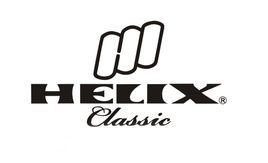



The company, which launched last year with an initial $100 million in investments from Illumina, Warburg Pincus, and Sutter Hill Ventures, plans to launch its first product in the fourth quarter of this year. Thurston would not disclose what that product would be, but said that the initial applications would fall into the non-regulated direct-to-consumer space, such as fitness, genealogy, and nutrition.
The goal with Helix is to design a platform not only for individual users to store genomic data, but to make it flexible enough to enable "applications that no one can even imagine today," Thurston said.
"The concept of building a platform where someone would take one initial DNA test and use it across a wide variety of applications throughout their life was one that was very interesting to me," he said.
Helix has not yet disclosed pricing for its services, but there will essentially be three types of fees that a consumer will pay. One will be the initial up-front cost of the sequencing itself. Second, there will be an on-going fee to pay for storage. And finally, the app developers themselves will set prices for their various products. A portion of the developers' revenue would go back to Helix.
Helix hopes to avoid requests to stop offering its services. "We want to follow all the rules and work closely with the FDA," Thurston said.
And, although the company will likely compete with consumer genomics companies such as 23andMe, Thurston said that Helix would also look for ways in which the companies could work together. In addition, he said, Helix is different from 23andMe and other companies in that it would "not build its own consumer-facing product," but would instead serve as an app store for products developed by its partners. Helix's goal is to "help the entire [consumer genomics] category to grow," he said.